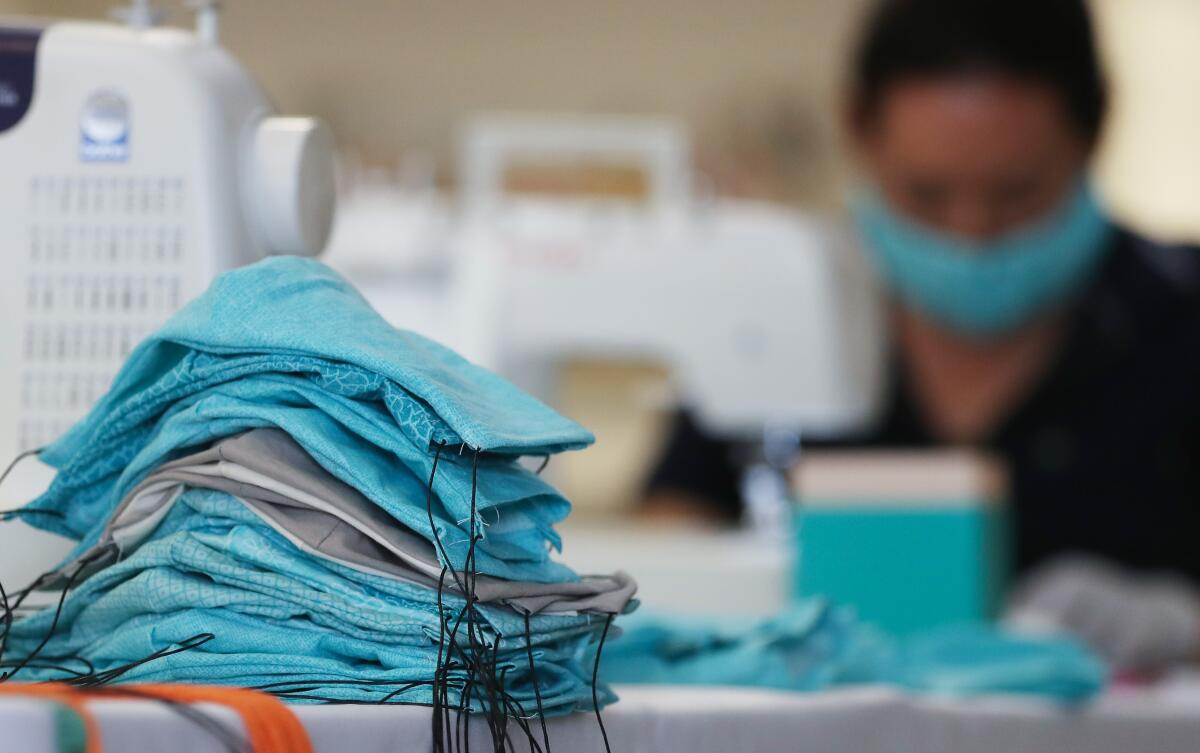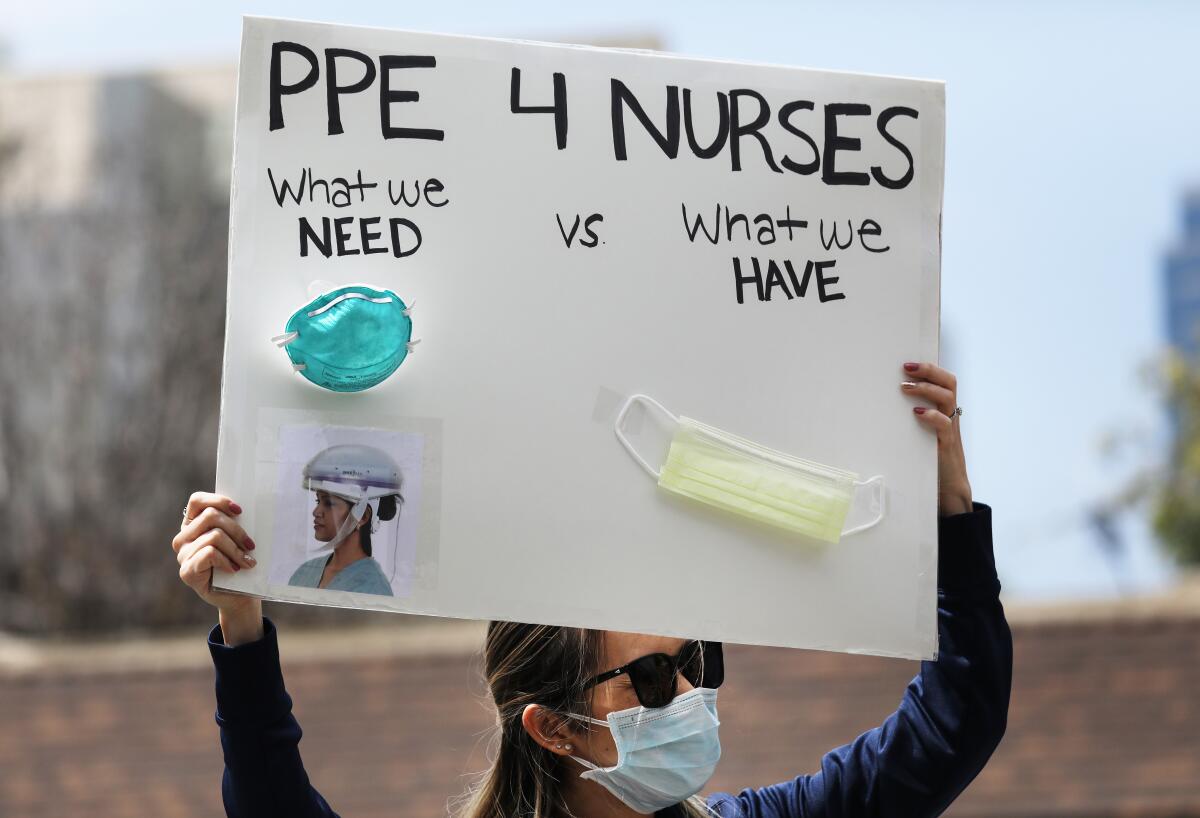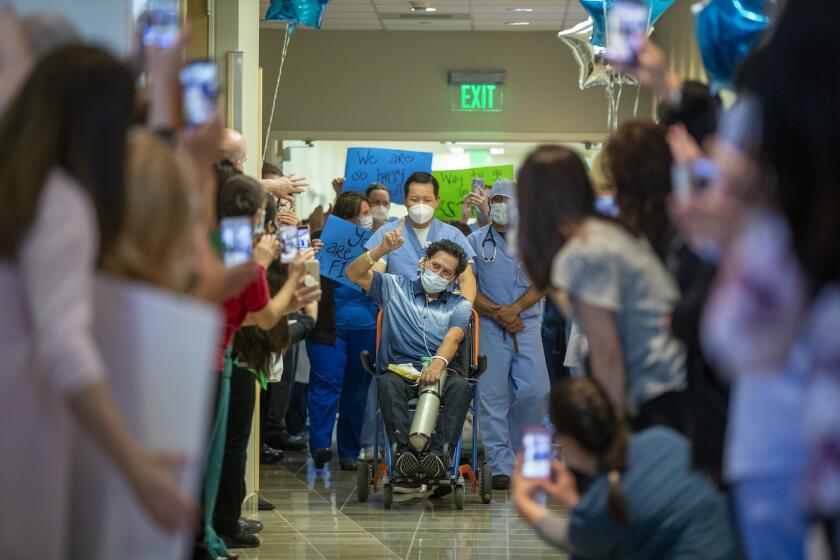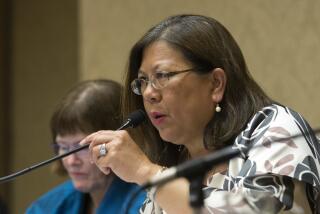39 million masks never materialized at hospitals, sparking a federal investigation

- Share via
They had seemingly done the impossible. The union that represents healthcare workers in California announced it had arranged the purchase of 39 million N95 masks for hospitals and government agencies that badly need the protective equipment.
Among the intended recipients was Kaiser Permanente, which placed orders for 6 million masks.
A week later, none of those masks have materialized, and Kaiser is cooperating with a federal fraud investigation into the deal, a spokesman for the health plan confirmed.
There is no indication that the union is a target of the investigation, and the exact reasons why the masks didn’t come through remain unclear. But the failed arrangement marks the latest in a smoke-and-mirrors marketplace for equipment in short supply as hospitals and other healthcare facilities in California and beyond prepare for an onslaught of COVID-19 patients.
Experts in the global supply chain say that dubious middlemen have flooded the market with suspect offers, creating an atmosphere of confusion and distrust just as hospitals are desperate to arm their front-line personnel with the gear they need to protect themselves from the novel coronavirus.

Kaiser spokesman Marc Brown said the mask supplier had been brought to Kaiser’s attention by Service Employees International Union - United Healthcare Workers West. Despite multiple requests, he said, the supplier repeatedly failed to provide reliable information about how Kaiser could verify and inspect the masks.
Kaiser withdrew from the deal and no money ever changed hands, he said.
“We learned shortly afterward that the supplier never had possession of the masks,” Brown said in an email. “We are cooperating with federal law enforcement in their investigation of suspected fraud in this case.”
Steve Trossman, a spokesman for SEIU-United Healthcare Workers West, said that the organization “was trying to save the lives of healthcare workers and patients” and that union officials “were proud of having made that attempt.”
Trossman said the union had turned the name of the supplier over to a federal task force that is investigating suppliers of medical equipment related to COVID-19. He declined to provide the supplier’s name to The Times.
A spokesperson with the U.S. attorney general’s office declined to comment.
Officials with the state and several other hospital systems and government agencies that the union had listed as buyers of the massive stockpile said they had decided not to pursue the deal. Meanwhile, healthcare workers who are members of the union say they haven’t seen the masks and are expressing frustration at the ongoing lack of personal protective equipment.
“We are angry, we are scared, we are mad, disappointed,” said Marcie Call, a medical records worker at Kaiser Permanente Santa Rosa.
These are some of the unusual new scenes across the Southland during the coronavirus outbreak.
At a Saturday news conference, Gov. Gavin Newsom said state officials also have run into fraud while trying to buy equipment and are working with the FBI to investigate con artists hawking masks.
“People are taking advantage of all of us at this moment and saying they’re going to deliver something quite literally that they’re not capable of delivering or never intended to deliver,” he said.
Newsom said some masks purchased by the state arrived moldy and were sent back.
“So, it’s not only not receiving the product, it’s getting inadequate product, a product that was identified and labeled as one thing comes in as another, or the units that were agreed to don’t arrive,” Newsom said. “This has been described, I think appropriately, as the wild, wild West.”
He said he plans to make an announcement early next week about the “larger supply-chain issues” and security protocols.
Counterfeiting is now rampant in global medical supply chains, said Rosemary Coates, executive director of the Reshoring Institute, a nonprofit that helps companies move manufacturing back to the U.S.
“Any time there is an opportunity like this, the counterfeiters will jump on it, and that’s what we’re seeing right now,” Coates said. “Things are mislabeled or the companies don’t really have the connection we think they have or they are made of low-quality components.”
The chaotic marketplace stems from the federal government’s lack of a coordinated strategy to procure protective medical equipment and distribute it equitably, Coates said.
Officials with Los Angeles County, which was among the intended recipients of the SEIU deal, did not respond to questions about the arrangements. But in a statement, Supervisor Mark Ridley-Thomas acknowledged that county health officials have found it difficult to quickly obtain the necessary supplies.
“It is baffling that local and state governments have to contend with the lack of national leadership in securing supplies, which has exacerbated competition, confusion and chaos at a time when our first responders should feel the most protected,” he said.
Chaun Powell, group vice president of strategic supplier engagement at the healthcare group purchasing firm Premier Inc., said bad actors had overwhelmed what he called the “gray market” for personal protective equipment.
“It’s a major problem. ... It’s creating so much false hope and distraction,” Powell said. “We’ve received no less than 300 solicitations in the last 10 days. Of that we’ve only found four that are potentially viable.”
The promise of 39 million masks was announced by Dave Regan, president of SEIU-United Healthcare Workers West, during a Facebook Live town hall on March 25. Regan said that the union had secured the supplies at $5 a mask and that various hospitals would soon be receiving millions of masks, according to a video of the event.
The next day, the union posted an announcement that it had found the distributor within “48 hours of painstakingly calling leads and potential suppliers.”
The statement, which said the union had no financial interest in the transactions, made headlines at major news outlets because of the daunting shortage of personal protective equipment.
This week, the union has distanced itself from the arrangement.
Trossman said the union only connected the supplier to the hospitals and had no involvement after that.
“As far as we knew, he had legitimate masks,” Trossman said of the supplier, “and the people who were going to purchase those masks were going to fully vet it and check it out and do their due diligence.”
The union’s March 25 announcement also said it had identified a second supplier that could make an additional 20 million masks per week for American healthcare workers.
What happened with the second supplier remains unclear. Trossman would only say that all potential leads for buying masks had been turned over to officials at various hospital systems, and they “expressed their gratitude and are following up.”
More to Read
Sign up for Essential California
The most important California stories and recommendations in your inbox every morning.
You may occasionally receive promotional content from the Los Angeles Times.














